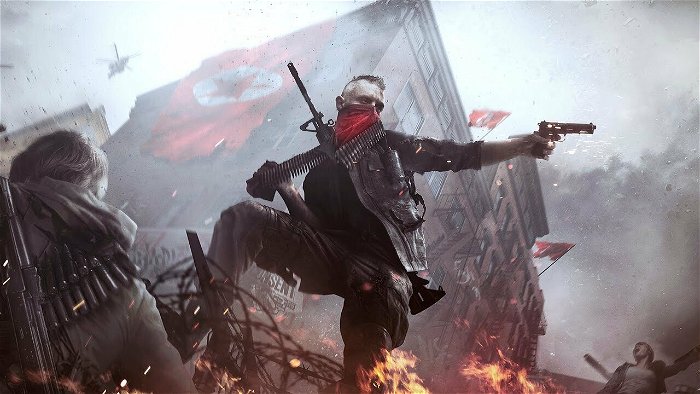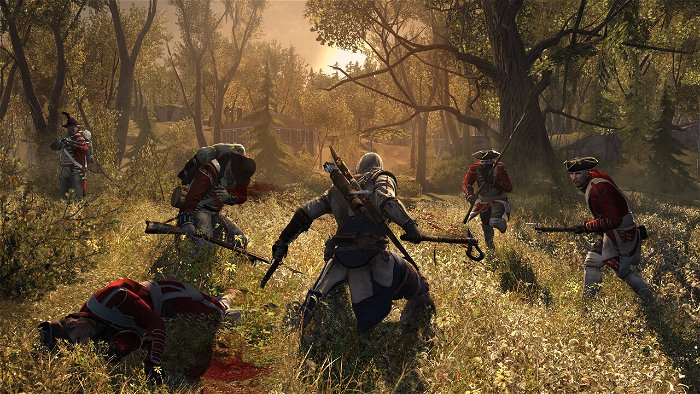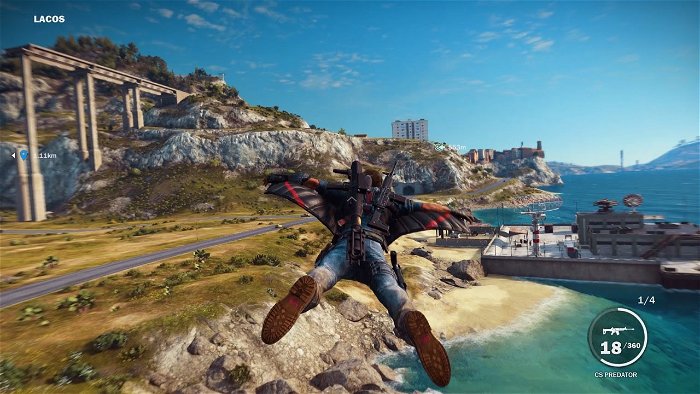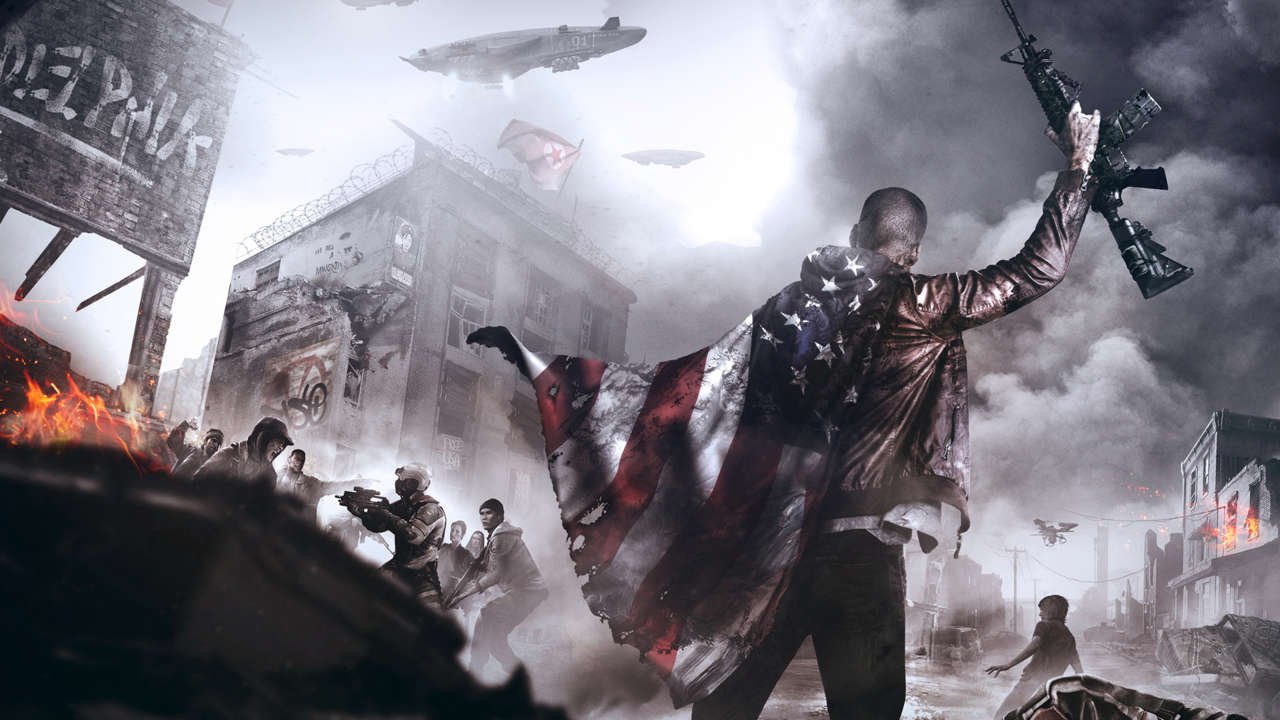To read a book or watch a movie about a revolution is to be an onlooker, whereby involvement is limited to viewing the events unfold before you as a spectator, rather than alongside you as a participant. Video games featuring revolutions, on the other hand, are able to directly task players with an active role in the uprising, representing a well-realized creative expression of the idea that revolutions, at least in theory, are inherently inclusive to anybody who believes in their cause.
Plenty of easily identifiable titles have offered such an opportunity in the past, but only to a limited extent. These games tend to focus on elevating the player’s sense of importance above their comrades in the virtual rebellions, subsequently undermining the “strength in numbers” mentality that so often fuels the spirit of revolution.

The definition over what exactly constitutes a revolution has been the source of much debate and discussion for centuries, but for the sake of this article we’ll begin with that ever reliable source of concision and accessibility; the English Oxford Dictionary. That resource defines revolution as “a forcible overthrow of a government or social order, in favour of a new system.”
We can likely all agree that video games have certainly not held back on depicting the “forcible” aspect of revolutions that definition refers to, though few can truly claim to offer anything beyond this dimension of revolutionary activity. That said, many interactive experiences have instead managed to effectively capture the zeitgeist of revolutionary fever, even as they fail to meaningfully tackle the subject matter itself.
This power of evocation is largely wrought by the medium’s ability to achieve what no other form of entertainment can accomplish in terms of player agency. In almost every game featuring a revolution, be it Just Cause, Dishonored, or Far Cry, the player is positioned as the primary agent of change. More than that, they are often heralded as the only one with the power and responsibility to transform the fictional society in which the protagonist so happens to find themselves. Your actions in the game directly determine the extent and nature of revolutionary change in the land. This experience is intentionally empowering as a form of immersion, and it certainly holds the effect of making players feel as though they are a meaningful part of these fictional revolutions.
Yet, as instinctively affecting as this “feeling” can be, it’s typically left somewhat undermined by the nuances of the story. To return to the semantics of what a revolution actually is, some (see Marx) would suggest that a revolution can only be qualified as such if it was brought about by the working class of society. With this conceptualization, then, change must come from the bottom up rather than top down.

Video games about revolution, on the other hand, tend to position players as the unitary hero of the story, often in possession of extraordinary skills and abilities, who can thus hardly be considered a common member of the populace. Assassin’s Creed III’s Connor is a master assassin of an ancient order; Dishonored’s Corvo Attano is endowed with mysterious and supernatural powers, and the playable character in Skyrim (should they side with the Stormcloaks) is the last of the dragonborn—not exactly an everyday citizen of the realm, then.
To take this criticism even further, certain games might very well provide the moment-to-moment experience of acting like a revolutionary, but the minutiae of the fiction reveals quite the opposite.
“In the Just Cause games, you play as Rico Rodriguez, a one-man revolution with little regard for abiding to the laws of political theory. “
In Dishonored, you are a bodyguard to an unelected ruler, until she is murdered and overthrown by appointed members of her own government. Despite all the talk of restoring order to the Isles, the circle of conspirators who you then work with to reclaim the Kaldwin throne also happens to be made up of some of the most elite members of society. It’s a tale of internal conflict among the ruling class of Dunwall; in which the common people are treated as nothing more than pieces on a chessboard. Even Dishonored 2’s tagline boldly encourages players to “take back what’s yours” as Emily Kaldwin or Corvo, but it’s worth remembering “what’s yours” is a Kaldwin dynasty that was never mandated through popular consent.
In the Just Cause games, you play as Rico Rodriguez, a one-man revolution with little regard for abiding to the laws of political theory. With the exception of Just Cause 3, where Rodriguez returns to liberate his homeland, the character is not so much part of a “bottom up” rebellion as he is a tool of foreign intervention; dismantling regimes that are no longer aligned with US interests. For many, this isn’t meaningful revolution but instead a form of neo-colonialism, yet it certainly feels like the former as you bring liberation to the locals via Rico’s professional knack for destruction.

Perhaps the only game that can credibly claim to simulate the life of an insurgent is the aptly titled Homefront: The Revolution. Despite Dambuster Studio’s sequel being a real mess in almost every other regard, the experience at least put players in the shoes of a resistance soldier who, and this is the important part, is just one member of a sprawling coalition of rebels. Of course, the player is still positioned as the primary agent of change in America’s ongoing war against a foreign occupation, but the game makes an effort to show your allies constantly fighting both among and with you. You are part of something bigger than yourself, an idea that is perhaps the concept of revolution boiled down to its most normative essence.
As hopefully demonstrated, developers have already proven they can successfully emulate the power fantasy of taking part in revolution in video games, but these often fall short of crafting a story which does justice to the realities of the phenomena. The gratification of fighting tyranny and liberating the land is in no short supply in video games, but how about more titles that take some time out from worshipping their protagonist to instead demonstrate the importance and power of collective action in revolutions? It’s a tall order, but one that it is nonetheless possible for a medium which has yet to discover the extent of its potential.



